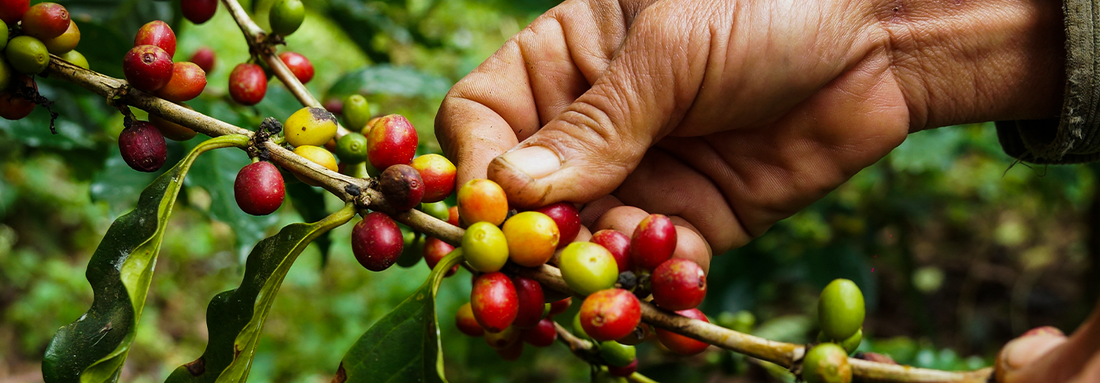
The Forgotten Hands Behind Your Morning Brew: Stories of Coffee Farmers You’ll Never See on Packaging
The Brew That Begins Before Sunrise
Every morning, millions of us reach for a cup of coffee to start our day. It's a ritual — comforting, energizing, familiar. But behind every sip lies a story that’s rarely told. A story of early mornings not in boardrooms, but on mountain slopes. Of hands weathered by soil, sun, and time. Of farmers and workers whose names will never be printed on glossy packaging but who carry the weight of the global coffee industry.
We often talk about the notes in our coffee — floral, earthy, nutty — but not about the voices. This story is about those voices.
Who Grows Your Coffee?
Coffee doesn’t begin in cafés. It begins in countries like Ethiopia, Colombia, India, Kenya, and Honduras — places where small-scale farmers grow, harvest, and process the beans that fuel the global obsession with coffee. The process is long, labor-intensive, and deeply reliant on climate, timing, and human touch.
Many of these farmers live in rural regions, often surviving on modest incomes while contending with climate unpredictability, volatile global prices, and a supply chain that rarely favors the producer. While specialty coffee commands high prices in urban markets, the farmers who grow it may earn less than a living wage.
This isn't just an economic gap — it's an empathy gap.
Unseen, Unspoken: The Invisible Labor
There’s a paradox in coffee culture. We photograph latte art, rave about origin stories, and debate grind sizes — yet remain disconnected from the people who make any of it possible.
We don’t see the young woman in Honduras who walks three miles before dawn to hand-pick ripe cherries.
We don’t hear from the Indian family who has passed down coffee growing for generations — watching prices drop while their labor remains constant.
We don’t know the Kenyan picker whose income depends entirely on the harvest yield, which is now threatened by erratic rainfall and rising heat.
These are the human stories behind the beans. They don’t sell, but they matter.
The Cost of a Cup — and Who Pays for It
The reality is sobering: while coffee has grown into a multi-billion-dollar global industry, many of the people responsible for its production remain trapped in cycles of poverty. Middlemen, exporters, roasters, and retailers often take the lion’s share of the profit, while farmers — the root of it all — get the smallest cut.
This economic injustice isn't accidental. It's structural. And unless we as consumers become more conscious of our choices, it will continue.
Towards a More Ethical Brew
What does ethical coffee mean?
It means asking where your coffee comes from — and who benefits.
It means supporting brands that invest in direct trade, fair wages, climate resilience, and farmer education.
It means looking beyond branding and marketing fluff to understand impact.
True sustainability isn’t just about recyclable packaging — it’s about human sustainability. It’s about dignity, opportunity, and fairness. Every cup we drink is a chance to support systems that value not just flavor, but people.
Coffee With a Conscience
At Ristavo, we believe coffee should never come at the cost of human wellbeing. We are committed to building deeper relationships with the farmers we source from — valuing their knowledge, honoring their stories, and ensuring they are part of the narrative, not just the supply chain.
Because a coffee brand with soul isn’t just defined by taste. It’s defined by truth.
So the next time you cradle that cup, pause for a moment. Think of the forgotten hands that made your morning possible. And remember: behind every perfect brew is a human being who deserves to be seen.





